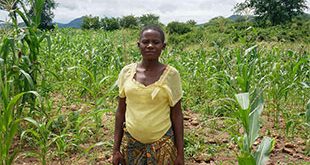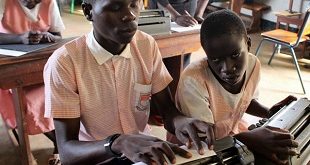
Kampala, Uganda | THE INDEPENDENT | As Uganda is marking its 59th independence anniversary from British colonial rule, the African country is embracing a brighter future for development with China’s assistance.
At Uganda’s Entebbe International Airport, the country’s major gateway to the world, Chinese engineers together with their Ugandan counterparts are upgrading and expanding the airport, which involves the construction of a new passenger terminal, building a new cargo complex, strengthening two runways and their associated taxiways, and the rehabilitation and overlay of three aprons.
Uganda sees the airport project as a springboard that will fast-track its economic development.
Out of the airport, there is a 50 km four-lane dual carriageway Expressway which links the airport to the capital Kampala. The four-year-old expressway, which was financed by a loan from China, has halved the journey to or from Kampala to the airport.
Also, thanks to the Belt and Road Initiative, two hydropower plants in Uganda are set to boost Uganda’s power supply, a key facilitator of economic development.
The Isimba Hydro Power Plant generates 183MW to the national grid. Further down the Nile river in northern Uganda, China is helping to construct the Karuma Hydro Power Plant that will contribute 600MW to the national grid.
The construction of the twin hydropower plants have also helped to reduce local unemployment. About 3,000 local people were employed during the building of the Isimba Hydro Power Plant. At the Karuma Hydro Power Plant, over 6,000 young people were employed.
Meanwhile, China has continued to provide support to Uganda in the health sector. In 1983, China sent its first medical team to the country. Since then, the Asian country has sent 21 medical teams on a rotational basis. By sharing skills with their Ugandan counterparts, the Chinese medical teams have played a critical role in boosting healthcare in the country.
Besides sending medical teams, supplies and equipment, China has also built a 100-bed hospital in Uganda. The China-Uganda Friendship Hospital, located in the capital of Kampala, has relieved pressure on the Mulago National Referral Hospital, which is overwhelmed with patients. The hospital built by China is now slated to be upgraded into a national trauma center, Uganda’s Minister of Health Ruth Aceng has said.
As the world grapples with the COVID-19 pandemic, China continues to send aid to Uganda. Besides the donation of protective gear, medicines and equipment, Uganda on July 31 received a donation of Sinovac vaccines from the Chinese government.
China is also helping Uganda develop its agriculture sector, the economic backbone of the country. Over 70 percent of the country’s population derives its livelihood from agriculture, according to official data.
Through a tripartite agreement with the United Nations (UN) Food and Agriculture Organization (FAO) and Uganda, and under the South to South Cooperation, China is scheduled to start the third phase of its agriculture support to Uganda.
Through the project, according to FAO, small-scale farmers in rural Uganda will benefit from hands-on training to boost production. Chinese technicians and experts will continue to share skills and technology on agronomic practices with local farmers.
At the end of the second phase of the project in 2017, about 3,000 farmers were trained in growing cereals, horticulture, aquaculture and livestock in Uganda, according to the Ministry of Agriculture. Chinese technicians have also introduced the growth of Chinese hybrid rice to local farmers. According to official studies, hybrid rice can yield up to 10 metric tons per hectare compared with conventional rice, which yields 4.5 metric tons per hectare.
China has also supported Uganda’s education sector by not only providing scholarships for Ugandans to study in China but also setting up vocational training centers in the country.
Zhang Lizhong, Chinese ambassador to Uganda, said last month that since bilateral relations were established about six decades ago, both countries have been able to overcome several challenges.
“We need to enhance the mutual understanding and support to each other on issues concerning each other’s core interests and major concerns, and maintain close collaboration and coordination on major international and regional affairs,” he said.
*****
Xinhua
 The Independent Uganda: You get the Truth we Pay the Price
The Independent Uganda: You get the Truth we Pay the Price



